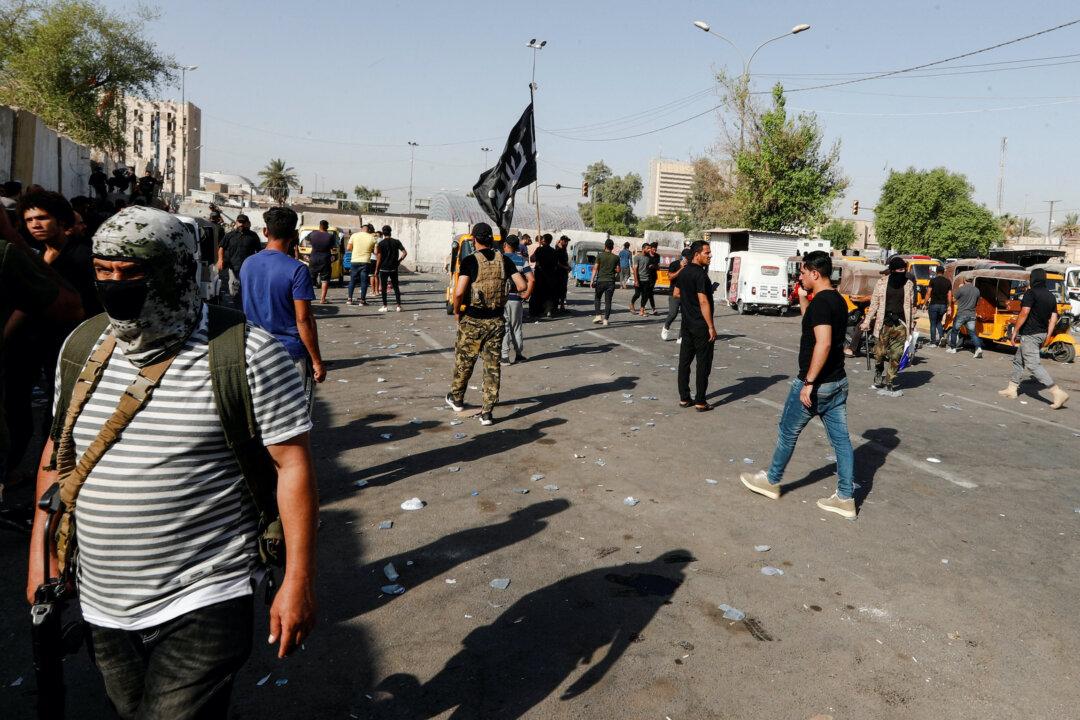BAGHDAD—Powerful cleric Moqtada al-Sadr ordered his followers to end their protests in central Baghdad on Tuesday, easing a confrontation which led to the deadliest violence in the Iraqi capital in years.
Apologizing to Iraqis after 22 people were killed in clashes between an armed group loyal to him and rival Shi'ite Muslim factions backed by Iran, Sadr condemned the fighting and gave his own followers one hour to disperse.





